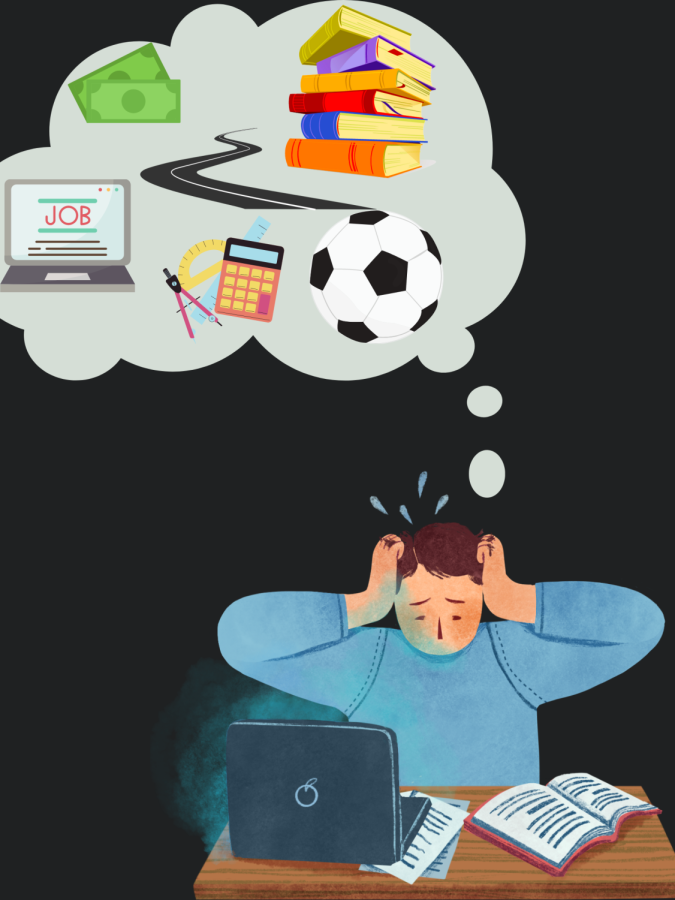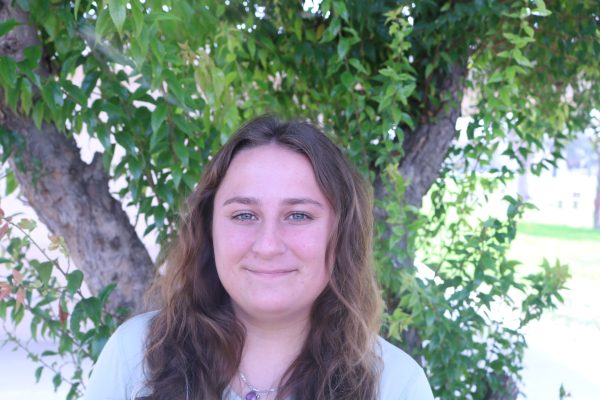VIEWPOINT: Mental Health Awareness Month shines light on unhealthy academic pressure
Students juggle a lot more than meets the eye. While it may look like all they have to worry about is homework, there are actually countless things at play in their lives.
May 27, 2022
Throughout May, which is Mental Health Awareness month, the conversation around academic validation and the pressure placed on students’ achievements is more important than ever. This dialogue makes it apparent that many students have a difficult time juggling the responsibilities of high school with self-care. With the weight of classes, sports, jobs, and other unknown responsibilities at home, it is common for the workload to overwhelm students and hinder their ability to meet their own needs.
Students will often treat their most basic needs, such as eating or sleeping, as secondary to homework. This mindset creates an unhealthy environment where students postpone taking care of themselves both mentally and physically which can have dangerous effects.
“It is probably not healthy but [I] wake up really early before school to get things done,” Junior Payton Wolfe said.
The list of consequences of sleep deprivation is extensive. Lack of sleep quality and/or quantity can result in memory impairment, inability to concentrate, irritability and more. It can even contribute heavily to depression and anxiety in teens.
Wolfe’s experience with losing sleep to do school work results in her feeling fatigued, along with being unable to perform her best during cheer.
This is a common occurrence within high school students. A recent study showed that 75% of American high schoolers admitted to being “often or always” stressed by school. Student and teenage stress levels average at a 5.8 on a scale of 1-10. In comparison to the 3.8 average level in adults, students are suffering exponential amounts of pressure.
“I see it in me and I see it in my friends,” Junior Shawn Coyner said. “It happens a lot when you get overburdened. I have seen people get panic attacks from [the stress].”
Coyner also says he has watched the mental health of his peers “degrade” over time from the consistent burden of being overworked. This culmination of strain on the teenage psyche may not seem like that big of a deal to the average adult, but the consequences can be fatal.
Academic stress can lead to depression, anxiety, and other behavioral or mental disorders. Too often, students fall prey to the success-driven ideas of today’s world and forget that the real priority should be to take care of themselves, not to achieve a higher grade or GPA.
Obviously everybody, children and adults alike, should have goals and be motivated. However, those goals should never come at the expense of your physical or mental well-being. When students spend an extended period of time ignoring their needs and constantly striving for perfection, they usually eventually end up experiencing the “Gifted Kid Burnout” phenomenon.
The best way to avoid burnout is to create sustainable and manageable methods to achieve reasonable goals. It is also important to not place all, or the majority, of your self-worth in whether or not you achieve those goals. Nobody has ever accomplished everything they wanted to in life. As a human being, you are going to make mistakes and it is important to learn how to be okay with that or else the disappointment and self-doubt can be crippling.
There are many methods of creating a healthier environment around the way you work or study. Possibly the most helpful is to use the resources offered to you. A lot of students are not even aware of how much support their schools might offer. If you are struggling with something, don’t be afraid to ask for help. You never know what might be available to make your life easier.
“I’m that bridge, let me connect you with the person [you need],” head of the Wellness Center Anita Vasquez said.












